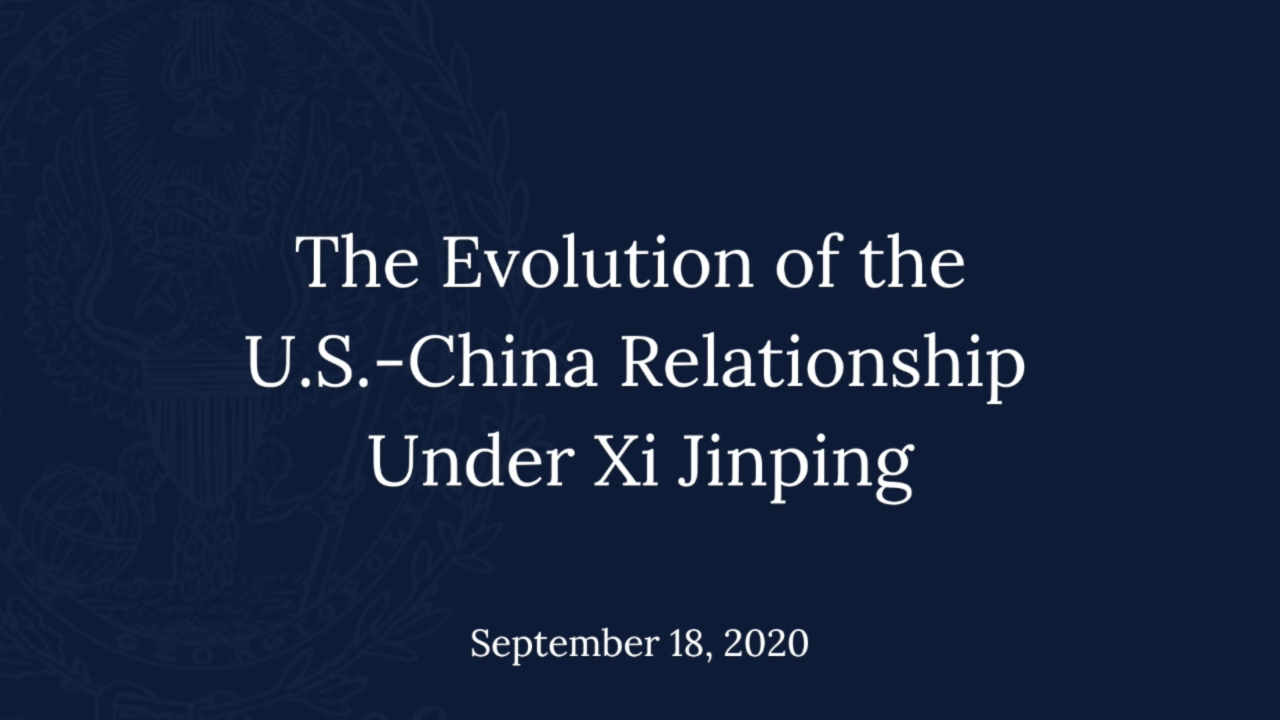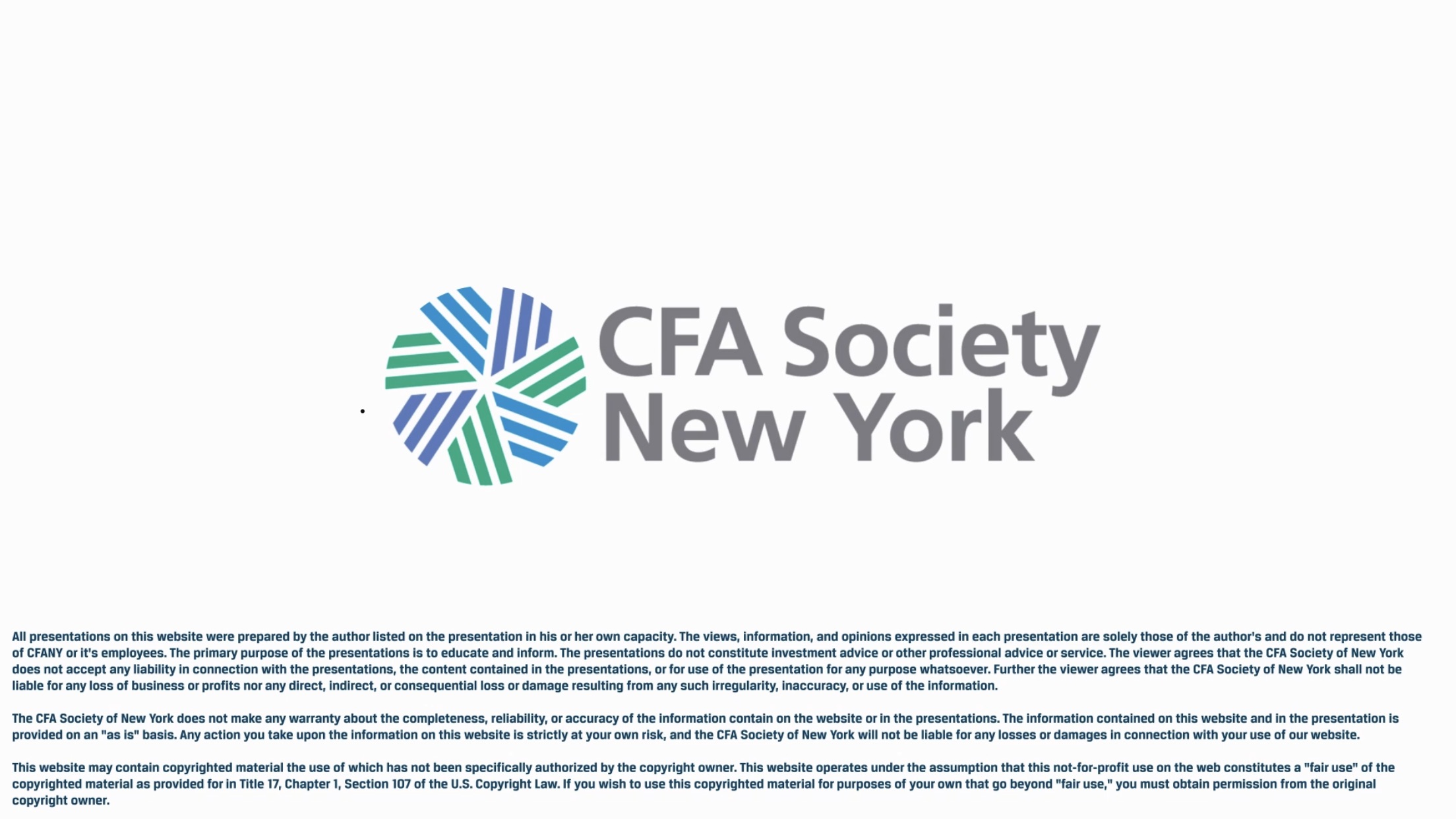How the Chips May Fall - EconVue Spotlight - September 2020
posted by Lyric Hughes Hale on September 29, 2020 - 11:12am

Charles Kupchan has a new book coming out on October 1st about the history of isolationism in the US. Ever since George Washington advised his new country ‘to steer clear of permanent alliances with any portion of the foreign world” the US has historically been a place people went to in order to escape disruption.
We could be headed for a new phase of isolationism now, accelerated by the global pandemic, just at the same time that China is entering a new phase of global expansion. As Kupchan writes:
Isolationism is one of the most influential political trends in American history. From the founding era until the Japanese attack on Pearl Harbor, the United States shunned strategic commitments abroad, making only brief detours during the Spanish- American War and World War I. Amid World War II and the Cold War, Americans abandoned isolationism; they tried to run the world rather than run away from it. But isolationism is making a comeback as Americans tire of foreign entanglement.
Earlier this month I gave a presentation at the Georgetown School of Foreign Service on "US-China Relations in the Era of Xi Jinping" and also participated in a panel on Big Tech in China for the New York CFA Society. These topics are in fact inseparable, because both our diplomatic and traditional trade policies have been overshadowed by competition between major technology firms in the US and China.
Many observers are carried away by our political zeitgeist, but I don't believe that the current nadir in relations originated with the Trump Administration. The rift is being driven by two different forces. The first is domestic and foreign policy transformation ("dual circulation") within the Xi Jinping government as it projects China's power globally.
The second force behind US-China tensions is competition between big technology companies on both sides of the Pacific. Big Tech in China has emerged as a huge force over the past twenty years, and now China and the US are really the only players that matter.
On the US side, some tech companies figured out how to operate in China and profited immensely such as Apple, which created millions of jobs, and more recently Tesla. Notably, both are hardware companies.
Other tech giants were excluded and were never able to gain a foothold behind China’s Great Firewall. Mark Zuckerberg studied Chinese and did his best to get into China, and failed. The same is true for Google, Amazon, Uber and Twitter who never gained a foothold, but their clones flourished. The founders of the FANG companies have vast resources, and have also rewritten the rules of political and social power. They don’t like to be told they can’t do something.
No doubt they have been made more unhappy by the unfettered entry into the US market by Chinese rivals such as TikTok. Their competitors have also been able to raise capital in US markets to fund their growth, not an option for US firms in Chinese public markets. Recently complaints by US firms have been buttressed by the emergence of national security and privacy concerns they usually don’t pay too much attention to themselves.
The news that WeChat will no longer be supported by US-based app stores, and TikTok will be banned if it is not acquired by November 12th, has ironically been slowed by US courts. As Greg Ip of the Wall Street Journal tweeted yesterday: "Headline you'll never read. Chinese judge blocks Xi Administration ban on Twitter, Google, Facebook."
It has occurred to me that a way for China de-FANG them would be to let these companies into their market and see if they can compete. Tech titans have a voice in US media and policy circles, and if Vice President Biden is elected, given their politics I predict that they will have an even bigger voice. I'll be particularly interested in how China is discussed as the debate unfolds in Cleveland tonight.
So what does this schism mean for the future of US-China relations? China is not a monolith any more than the United States is, and the relationship between the two is multidimensional. The sometimes-competing sometimes-cooperating interests of constituencies in each country are diverse.Neither China’s newly aggressive foreign policy stance, nor the increasing US propensity for isolationism adequately encompass the realpolitik of the world we live in today.
COVID-19 has shown a very bright light on our interconnectedness. Many of us are now wearing masks made in China. In spite of the barbs traded back and forth, Chinese and US scientists continue to work together and consult each other about advances in treatment, often over Zoom, whose data centers are located in China.
US businesses in China are not leaving and advanced supply chains are sticky. According to a survey by the Shanghai American Chamber of Commerce, only 4% of American firms are planning to onshore operations back to the States. China and the US are like a married couple who continue their sometimes-embarrassing spats in public yet are bound by so many ties and interdependencies they cannot really divorce. The structural supports of our economies are shared and mutually essential.
The danger is that we will decouple our technologies, and the world will have two Internets and two sets of technology standards. Of all the recent actions taken against Chinese tech companies in the US, the blacklisting yesterday of China's largest chipmaker, Shanghai-based SMIC is the most devastating. If Huawei's CFO Meng Wanzhou is extradited to the US-she returned to court on Monday-retributions can be expected.
Fractures are appearing all along these new technological faultiness, sometimes following the path of Belt & Road. Recently, China contracted to build out a new Internet for Iran based on Chinese standards. A fenced off world will be less productive, innovative, and yes, global. A world where quite literally, the chips will fall where they may, on two sides of a new digital divide.
Links to the two webinars I mentioned are below, as well as our usual selection of friends and expert commentary. As always, we welcome your comments and suggestions.

The evolution of the U.S.-China relationship under Chinese President Xi Jinping, with a focus on economic relations. Georgetown School of Foreign Service, Asia Studies Program

China's Big Tech and Their Global Ambitions, CFA Society of New York
Research from EconVue Friends & Experts
August 18, 2020 / Brookings
Want herd immunity? Pay people to take the vaccine
Robert E. Litan
This is absolutely the smart answer. Instead of asking them to pay to get immunized, pay them. It is only a matter of the price. Given the costs of a prolongued pandemic, whatever it is will probably be worth it.
Sep 21, 2020 / 4sight Health
Where Have All the Patients Gone? The Art and Soul of Recapturing Lost Treatment Volume
David Johnson
Among the many “new normals” in post-COVID healthcare is the significant loss of patient volume at hospitals, clinics, and emergency departments along with dramatic increases in virtual care. In this sense, COVID-19 may be fundamentally altering healthcare supply-demand dynamics with far-reaching consequences for healthcare providers.
Sep 22, 2020 / Washington Monthly
Trump’s Failures and Lies about Manufacturing Jobs
Robert Shapiro
Under Trump's presidency, foreign outsourcing by U.S. manufacturers rose frighteningly while the number of U.S. manufacturing workers fell sharply. Under Barack Obama, U.S. manufacturers cut back substantially on outsourcing, and manufacturing jobs at home rose sharply.
Sep 24 25, 2020 / Tokyo Keizai
How Will Suga Deal With Regional Banks’ Perilous Financing?
Richard Katz
Does Japan have “too many banks”? A view on Japan’s new prime minister's economic policies by a veteran Japan observer.
Sep 10, 2020 /EconVue
A Post-Abe Japan in the Reiwa Era
Eleanor Shiori Otsuka Hughes
Report on a virtual program hosted by the Center for Strategic and International Studies (CSIS) titled “Japan After Abe: Legacy and Next Moves” in light of Japanese Prime Minister Shinzo Abe’s sudden announcement to resign due to chronic health issues.
Sep 22, 2020 / Washington Monthly
Food inflation threatens lives and economic recovery - Financial Times
Lyric Hughes Hale
Shortages are a window on to the challenges facing the post-pandemic world economy. The potential macroeconomic effect of food shortages are also clear. Rising prices could push up inflation and, in our debt-fuelled world, even a small uptick in interest rates could break economic recovery before it takes hold.
2020 / American Economic Review at Stanford University
Are Ideas Getting Harder to Find?
Nicholas Bloom, Charles I. Jones, John Van Reenen, Michael Webb
This paper concludes that to maintain productivity growth, and hence economic growth, research efforts need to double every 13 years. That is not happening.
July 1, 2020 / the American Interest
This Time It’s Really Different
Frank Vogel
The COVID crisis has injected a legitimate humanitarian imperative into bailing countries out of a sovereign debt crisis of historic proportions. The hastiness of the bailouts, however, is setting up all sorts of dire unintended consequences. July, 2020 / Social Policy and Society; Cambridge Core
Modern Monetary Theory and the Changing Role of Tax in Society
Andrew Baker and Richard Murphy
One of MMT’s most important, but under-explored, contributions is its potential to re-frame the role of tax from both a macroeconomic and social policy perspective.
Sep 15 2020 / Project Syndicate
Crunch Time for Central Banks
Stefan Gerlach
In little more than a decade, the global financial crisis, climate change, and the COVID-19 pandemic have transformed the environment in which central banks operate – and public opinion is not on their side. Monetary policymakers who fail to respond to these shifts in sentiment will see their reputations suffer. Sep 10, 2020 / Plante Moran
Supply chain issues will get worse in 2020. Here’s what to do now
Matt Stekier & Ray Lark
Worsening supply chains are a recipe for inflation.
Sep 24, 2020 / Reuters
Harley deepens restructuring with India exit
Mihir Parikh of Nishith Desai comments:
It is always sad to see an icon fail in the largest market of its offerings. Everything was going for Harley-Davidson in India: an inspiring brand, differentiating features, and even a local manufacturing plant. But like many other global automotive companies, it seems to have failed to create excitement around its motorcycles, navigate the regulatory and tax regimes, and was perceived as too pricey for the value it provided.
,br> Sep 21, 2020 / Bloomberg
Why New York’s in a Depression and Texas Isn't
Conor Sen
The downsides of urban service-based economies. Tourism is the new oil: it became a natural resource curse instead of a blessing in a pandemic economy.
Sep 10, 2020 / Economic Policy Institute
Coronavirus Pandemic Poses Major Challenges to U.S. Students and Teachers—and Exacerbates Existing Education Inequities
Emma García and Elaine Weiss
An economic recovery plan for education. Enormous investments will be required.
Sep 15, 2020 / Nature
Stillbirth rate rises dramatically during pandemic
Clare Watson
A tragic outcome, caused by decreased access to care during COVID, not the disease itself. And this is just one example of the huge costs we will see created by disruptions in the continuity of care for all patients.
China
Sep 28 2020 / BBC News
US Squeezes China's Biggest Chipmaker SMIC
Leo Kelion
Shares of China's biggest chipmaker fall after US government blacklisting.
Sep 15, 2020 / The American Prospect
The China Conundrum: Deterrence as Dominance
Andrew Bacevich
If a Biden Administration comes to pass, Michèle Flournoy could become the first female Secretary of Defense. In Foreign Affairs, she makes the case for a US military buildup to counter China. But is there political will to do this? Have the neocons have found sanctuary in the Democratic Party? Bacevich writes "A people whose entire way of life has been overturned by the coronavirus and who find themselves besieged by unprecedented natural disasters should consider the possibility that genuine security is no longer a function of accruing and wielding military power."
Sep 22 2020 / Reuters
China should raise costs to deter speculative foreign money - People's Daily
Is Zhu Min, former deputy managing director at the IMF, talking about a Tobin Tax? Sep 24, 2020 / SCMP
China's surging corn prices blamed on speculators as Beijing plays down fears of grain shortage.
Orange Wang
Sep 8, 2020 / Reuters
U.S. firms in China increasingly fear bilateral tensions will last for years: survey
Brenda Goh
Supply chains are sticky: "Less than 4% are shifting some production back to the United States while 14% are moving some production to non-U.S. locations."
Sep 1, 2020 / Beijing Review
The Yangtze River Delta is set to herald a new development pattern
Yuan Yuan
Fascinating that Tesla is having a stimulative effect on China’s economic development plans in the region.

